The argument over whether Scots is actually a language has the uncanny ability to bring otherwise sensible folk to a spittle flecked rage.
Billy Kay, the well known writer and broadcaster and long time champion of the Scots language, has recently been assailed on social media and in print by folk enraged at his address to the Scottish Parliament in his Mither Tongue.
And yet the majority of Dundonians that I know are bilingual.
They speak Standard English and will also happily converse in their own language which, depending on your view, you may call Scots, dialect, patois, vernacular, or whatever floats your boat.
Each individual will decide when either or both elements are appropriate. And it’s not unusual for conversations to switch midstream between the two, depending on the company folk are in.
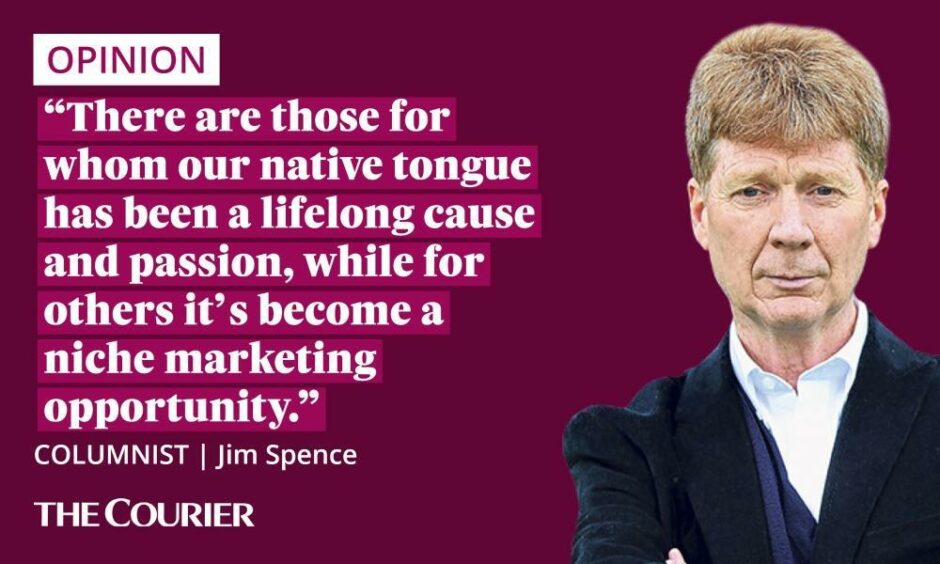
I have to admit I’m ambivalent about the issue. And I use both interchangeably without giving the matter too much thought.
But for some, the language has become a nationalist shibboleth, while for others a form of cultural cringe seems to kick in whenever someone speaks in Scots.
I think the biggest issue facing Scots is with the written word.
While almost everyone is fluent in the spoken word to some extent or other, many are unfamiliar or haven’t been exposed sufficiently to the written form.
And it doesn’t help that there are so many variations between words and their pronunciation and spelling in various parts of the country.
Scots language has never been a barrier
At school I’m pretty sure we were regularly “checked” or “telt aff” for using Dundonian.
The most frequent criticism was that it was “oary”.
It's a privilege tae wark in oor national Pairlament ilka day, but some days ye feel it mair than ithers. The day wis ane o they days – bein in the chaumer as Billy Kay gied the first "Time for Reflection" in #Scots.
A wee bit Holyrood history wis makkit the day. pic.twitter.com/D8DgInMq7L
— Ashley Douglas (@ashdouglasscot) April 26, 2022
But for many years after, when I was covering football games in Dundee for BBC Scotland, my post-match pint with mates would involve heated debate and discussion on the merits of the teams and the players involved.
Those conversations would include a wide social mix of the city – from labourers to lawyers and drivers to doctors.
All were fluent in both tongues and used them to differing degrees.
Likewise, when I worked in Jersey, my scouse mate from Ellesmere Port and I would chew the fat for hours over pints of the very cheap beer, which was a major attraction of a holiday job in St Helier.
Both of us managed to understand each other perfectly well, albeit with the occasional comedic mishap.
(For a while I thought “busies” meant public transport, before I eventually jaloused that it referred to police officers.)
Language is ultimately about communication.
It is a living, breathing thing.
And languages which do not thrive may die, or go on to live a kind of hybrid half-life existence.
No place for politics in this discussion
It seems to me that there are those like Billy Kay, for whom our native tongue has been a lifelong cause and passion, while for others it’s become a niche marketing opportunity.
Some Johnny Come Latelys have undoubtedly boarded the bus marked “Scoatch” in the hope the destination is to a terminus where there’s money to be made.
Similarly some folk appear to regard the use of Scots as some kind of personal affront to them.
Wi aw the stooshie surrounding my brief appearance at the Parliament, a reminder to everyone that you can dispel the ignorance of angry yoons by giving them the gift of knowledge! They don’t even need to be literate if they buy the Audiobook: More here: https://t.co/nxjeEtHBx7 pic.twitter.com/RfdUMkjj8f
— Billy Kay (@billykayscot) April 28, 2022
Here, the dividing line often seems to be between those thirled to the independence cause and those in favour of the Union.
But I see no good reason why political differences should decide whether the native tongue, which if familiar to most of us, should be widely used or a cause for distress.
Socialist or capitalist, nationalist or unionist, your politics shouldn’t decide which form of language you’re comfortable with.
Dundonian and proud of it
There are marked differences between Dundee and Glasgow and other areas in the way words are used and their meaning.
It’s always instructive, not to say humorous, to hear a non-Dundonian, especially from the west, attempt the phrase “Twa hot pehs an an ingin ane ana” without sounding like a half strangled cat.
Equally there is the legendary conversation, now passed into folk lore, between twa wifies on the bus to the Sinderins.
This one would undoubtedly tax the linguistic abilities of those from outside of the city boundaries.
On that occasion, they were discussing the merits of a well known ladies’ eye shadow on a friend’s countenance. Or pus in oor patois.
One of the pair complimented its effectiveness, remarking: “It fair emphasehses the sehs oh hur ehs.”
Their glowing acknowledgement that the brand in question highlighted the capaciousness of their pal’s peepers would certainly tax the understanding of those furth of Fintry or south of St Mary’s.
But no self-respecting Dundonian could fail to understand or indeed be moved by such loquacious, heartfelt praise.
Future of Scots language is in all of our hands
I don’t know if Scots is fighting a losing battle.
That will surely depend on whether future generations see any value in it or reckon that its time is up.
But to paraphrase the Declaration of Arbroath, I suggest that as long as a hundred of us are still blethering in the native tongue it’ll never gie up the ghost.
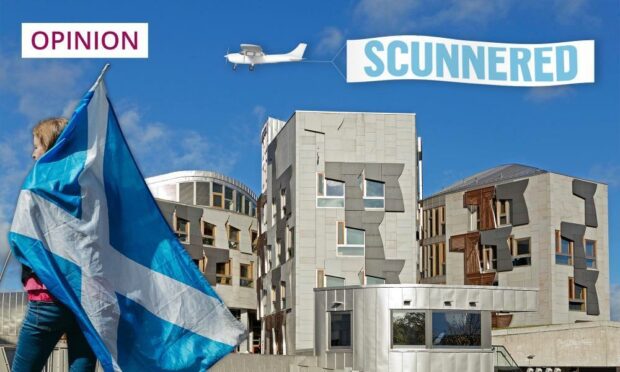
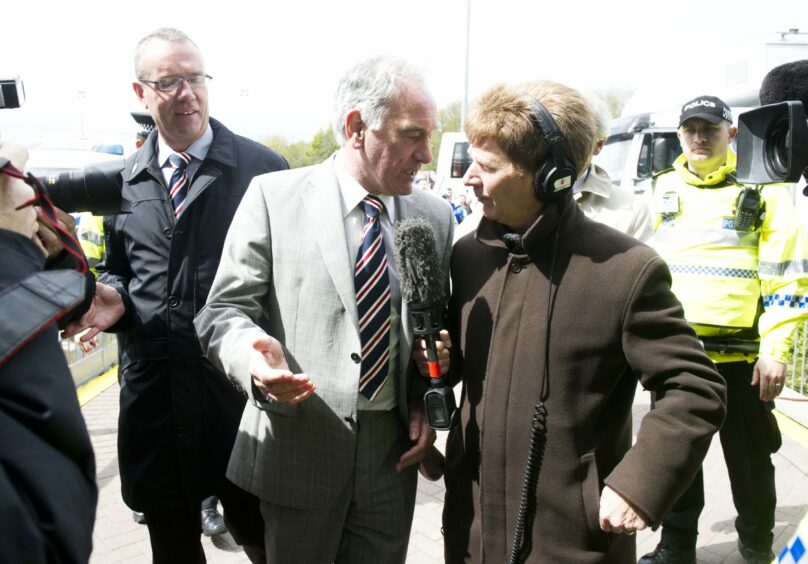
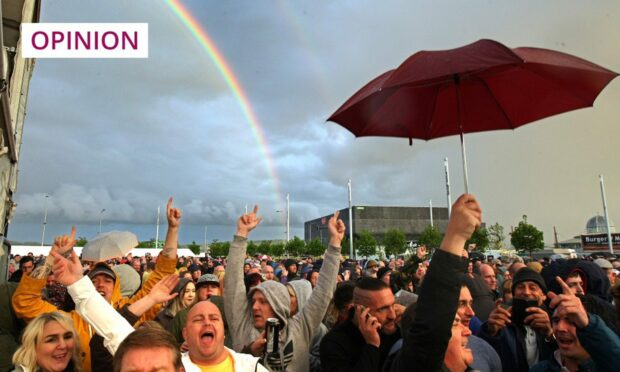
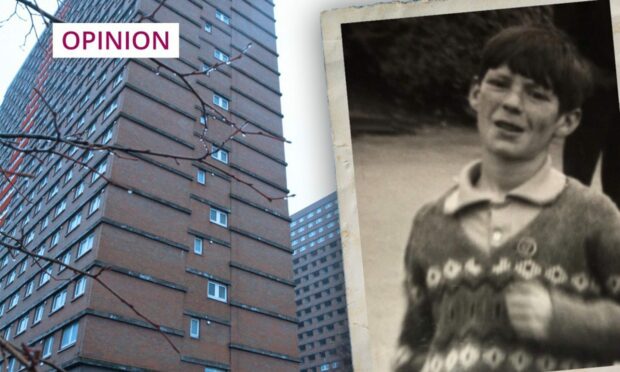
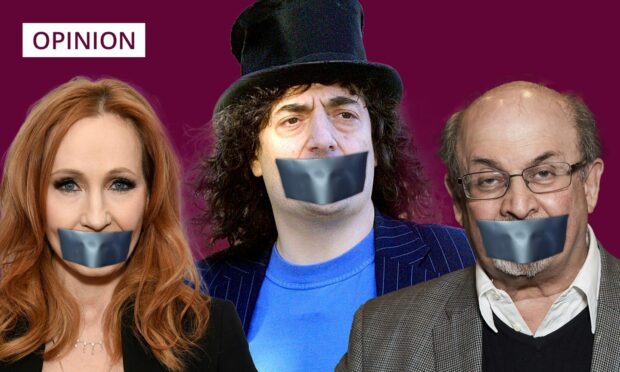
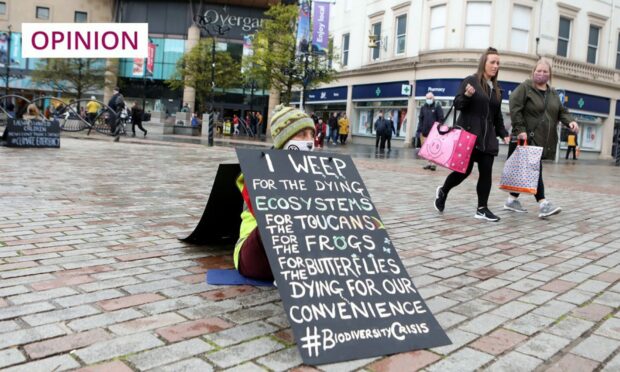
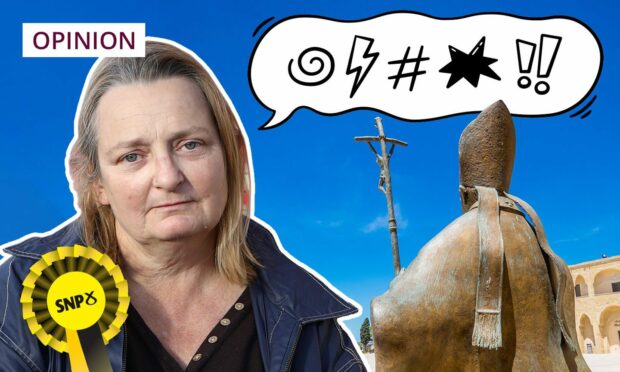
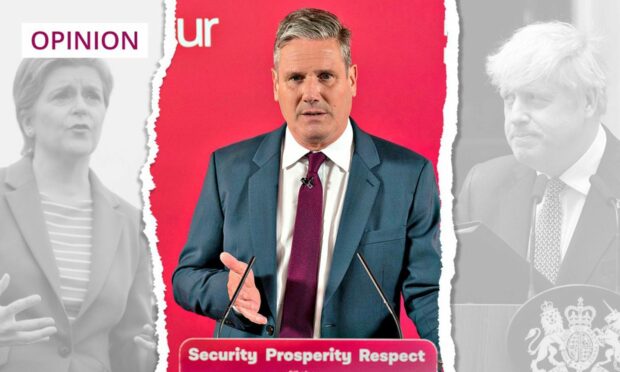










Conversation